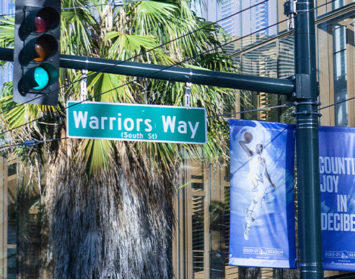With 2011 now here, there are plenty of new-year prognostications on the future state of the economy, the new political landscape, the continuing drought, whether the Chargers will stay or leave San Diego, and who knows what else.

San Diego is beset by diminished levels of public services and a lack of fiscal discipline that has led to excessive pension costs among other things. Then there are potholes and horrific acts of violence across the border that threaten to creep northward. Meanwhile, staffing the city’s police force and fire stations and providing other public safety resources is problematic given the city’s projected $72 million operating deficit for 2011-12.
With that in mind, here are a few 2011 resolutions that would make and keep our region a better place to live, work and play.
Resolved that the city begin exercising tough love with its employee unions before taxpayers find it necessary to do so with local politicians.
The biggest contributor to the city’s financial shortfall is its soaring $2 billion pension fund deficit. The existing defined benefit program allows employees, still in their prime working years, to retire at full salary — and even more. Imagine getting a raise when you retire. Public employee unions rule at the bargaining table and even at the ballot box, given their success in getting friendly candidates elected.
However, those in elected office need to remember who they work for—the taxpayers, not the union bosses. Frankly, unions couldn’t care less about the people’s priorities other than the care and feeding of their members. It’s up to our elected leaders who must realize that pension benefits are no longer financially or politically sustainable. These costs need to be brought under control now; it’ll be too late when the city is totally insolvent.
Resolved that the city adopt business practices to control costs, including outsourcing services to best-of-class providers.
Ballooning pension costs are not the only fiscal villain San Diego faces. While the city is not a business per se, it should adopt those principles that help private businesses control costs while providing core services. Outsourcing applicable services is one such option that would enable cities and other public agencies to provide services at lower costs.
Resolved that the city resist capital projects that don’t create revenues or are ill-timed, given the financial doldrums that promise to continue well into the new decade.
The biggest potential civic boondoggle is the lingering notion that we need a new city hall. To be sure, it would be nice; but it would be great if I had my own jet. The problem is that I can’t afford it regardless of how creative I get with my spreadsheets. The same holds true for the city as it tries to rationalize a new city hall.
Despite reasoning to the contrary, the topic continues to be chatted up as a cost-saving measure along the lines of: “It will save the city too much money not to go forward…” That’s utter nonsense and worthy of more detailed treatment in a future column. Meanwhile, we can only hope the new doe-eyed council members won’t fall prey to the peer pressure created through manipulating the numbers. I for one will help fund a recall effort against any council member who tries to sneak it through without a public vote.
Resolved that the city do what it takes to keep San Diego as the Chargers’ first name.
At the same time, the city needs to protect one of its biggest economic and cultural assets—the San Diego Chargers. Having its name attached to a NFL football team brings the city not only direct financial benefits but major city status that has incalculable indirect benefits. The proposal to build a new stadium downtown contemplates using future redevelopment revenues—not general fund monies used to finance city services.
Back to cutting costs: There’s a clear-cut set of fiscal solutions in preliminary form on the table that would incorporate these and other initiatives to restore financial soundness to the city. Councilman Carl DeMaio’s “Roadmap to Recovery” contains $84 million in cost cuts next year alone that would more than wipe out the projected deficit. All it takes is a good dose of political grit.
There will be plenty of credit to spread around if we make 2011 the year in which we tackle and begin to solve these problems. Likewise, there will be plenty of blame if we don’t.
Jason Hughes is founder of Hughes Marino, an award-winning commercial real estate company with offices across the nation. A pioneer in the field of tenant representation, Jason has exclusively represented tenants and buyers for more than 30 years. Contact Jason at 1-844-662-6635 or jason@hughesmarino.com to learn more.









